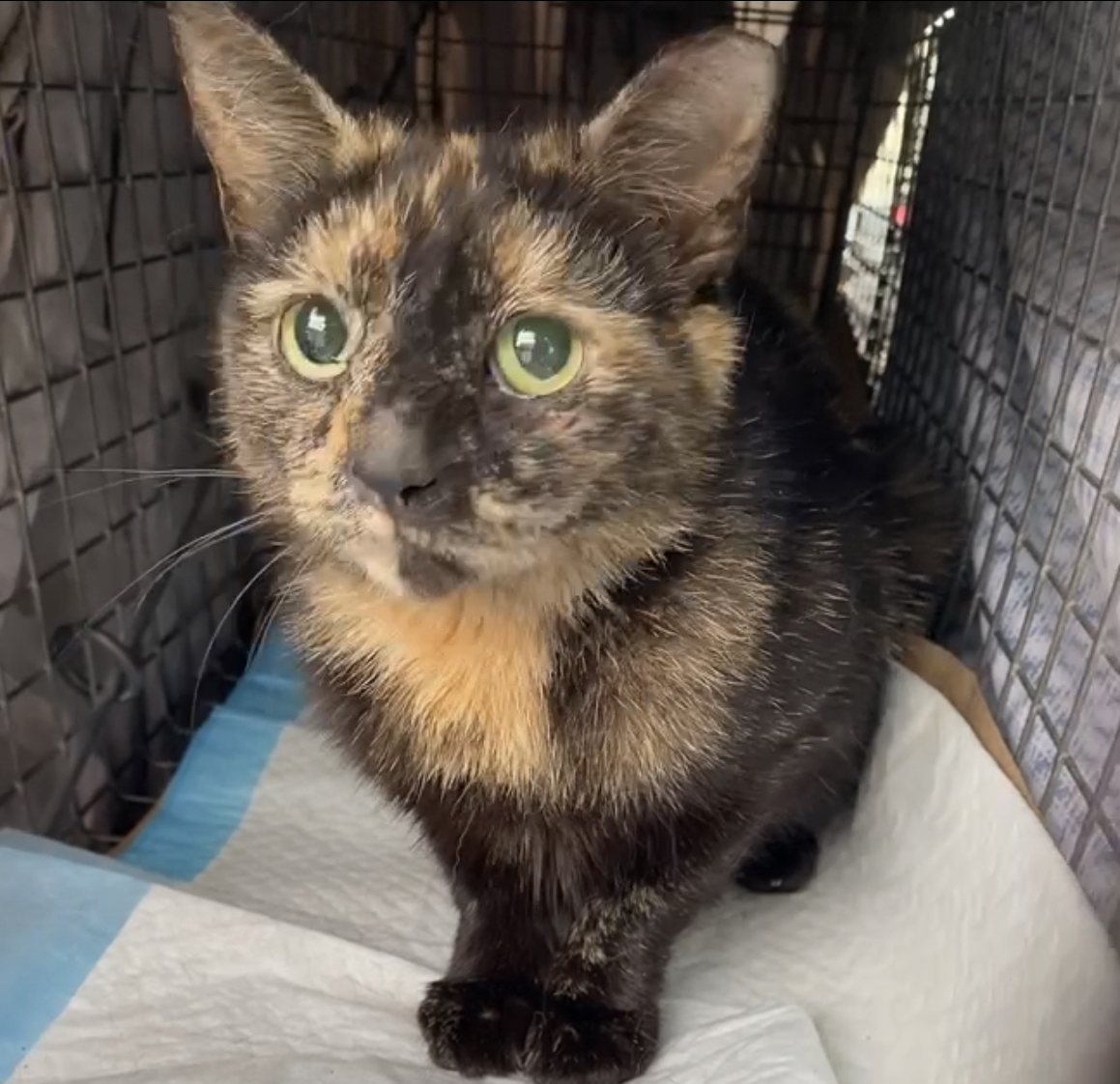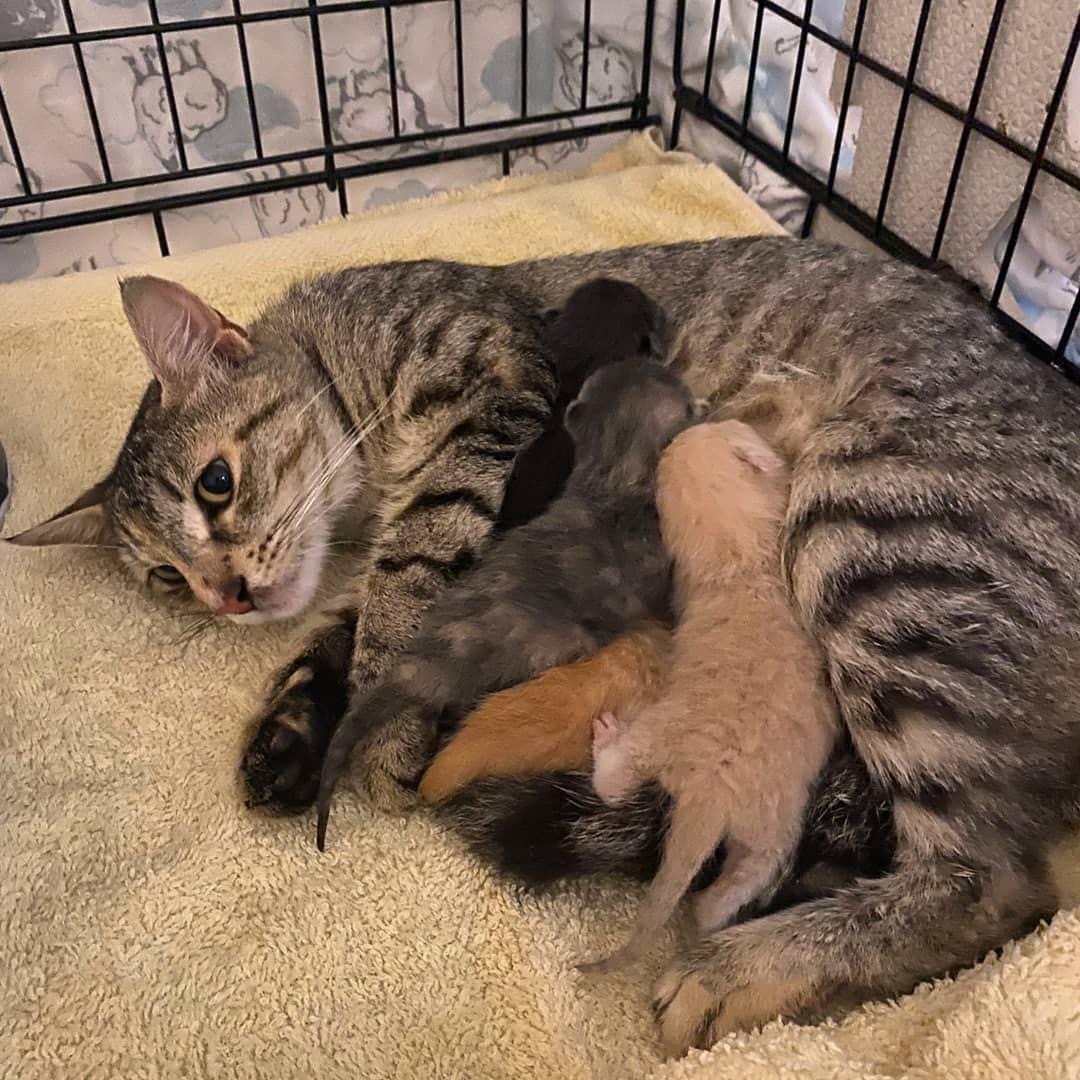
a female cat can give birth to over 200 kittens in their lifetime
It is hard enough for feral cats to find enough food to feed themselves. But a momma cat must also find enough feed to feed her and her babies. Lots of babies. Having multiple litters can also lead to very painful and life threatening illnesses and reproductive cancers.
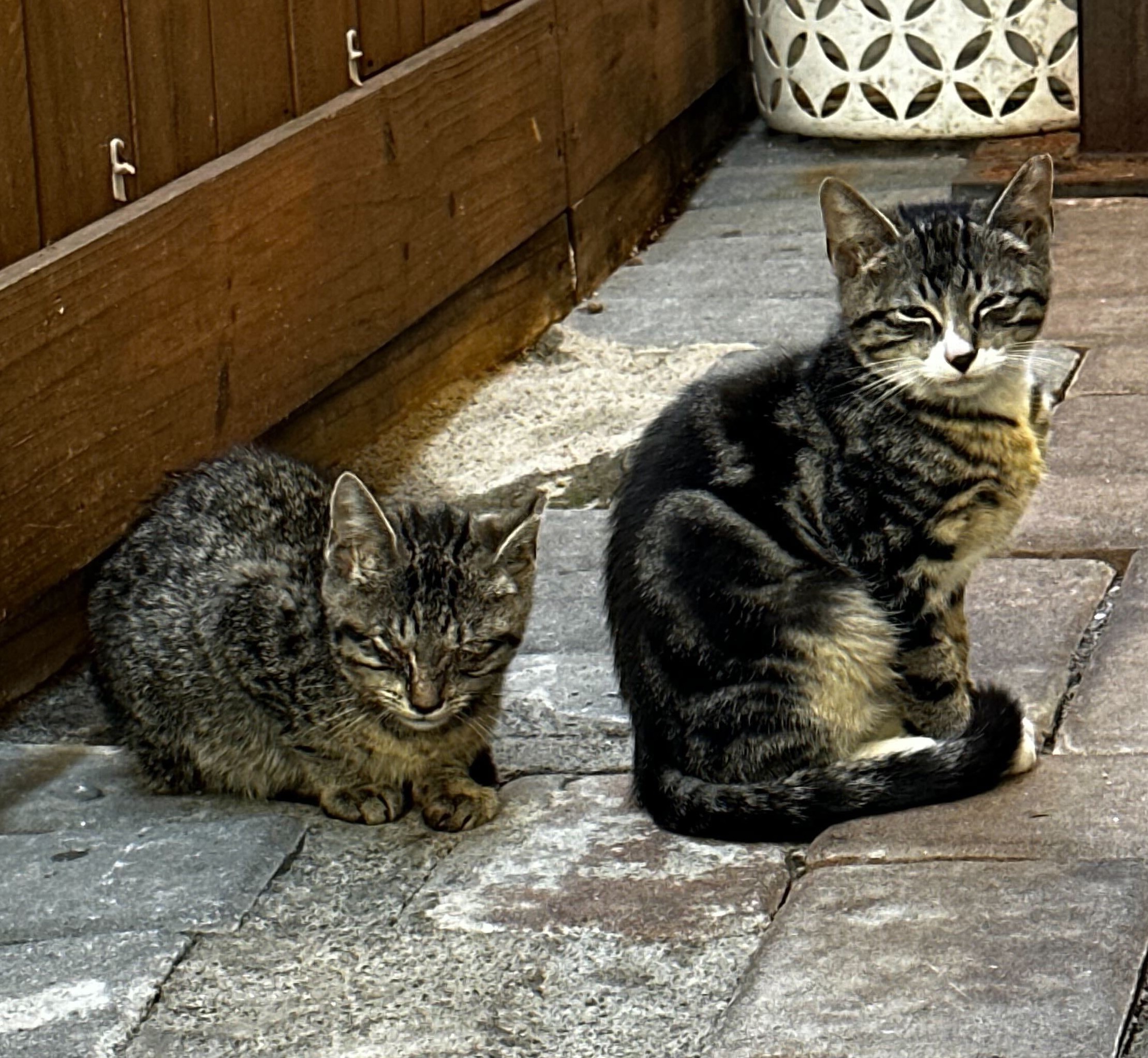
average lifespan of feral cat in years
Compare that to the average lifespan of an indoor cat 10-15 years. Cats sometimes live into their 20s. The oldest cat on record made it into their 30s.
Cats that live outdoors can freeze to death or die of starvation. Cats are also known to get into car engines for warmth. Many are hit by cars or construction machinery.
https://be.chewy.com/how-long-do-cats-live/
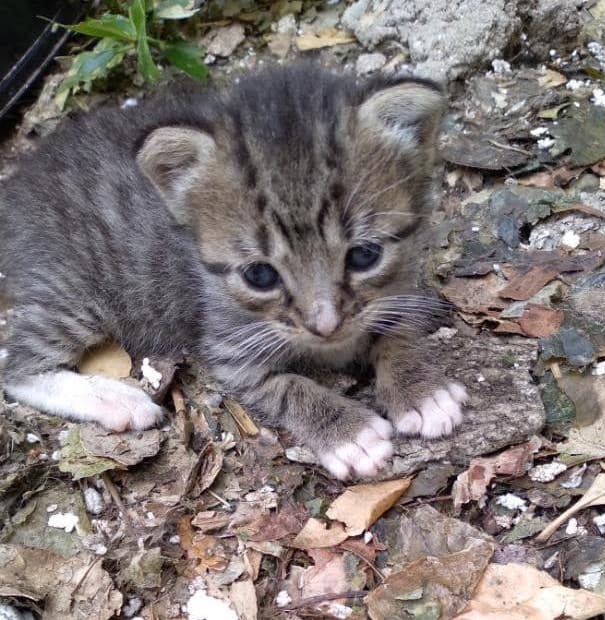
%
of kittens born outside that die before 6 months
The dangers are numerous for kittens born outdoors. Young kittens suffer from eye infections, upper respiratory infections and illnesses like panleukapenia. Baby kittens are also prey for larger predators like raccoons. Kittens also lose their source of food when their mother is killed in traffic.
Saving Lives
What is TNR?
TNR or Trap-Neuter-Return is the humane and effective approach for stray and feral cats. It is exactly what it sounds like: Cats are humanely trapped and taken to a veterinarian to be neutered and vaccinated. After recovery, the cats are returned to their home colony outdoors. Kittens and cats who are friendly and socialized to people may be adopted into homes.
TNR stops the breeding cycle of cats and therefore improves their lives while preventing reproduction. Scientific studies show that Trap-Neuter-Return improves the lives of feral cats, improves their relationships with the people who live near them, and decreases the size of colonies over time.
source: alleycat.org.
Read more about the history and science behind TNR here https://www.alleycat.org/resources/why-trap-neuter-return-feral-cats-the-case-for-tnr/
The Benefits of TNR
TNR Improves Cats’ Lives
Cats that are spayed/neutered are less likely to spread or contract major feline illnesses like FIV and FelV.
Cats that are fixed are also less prone to reproductive system related cancers and conditions like mammary cancer, uterine cancer, and Pyometra.
TNRed cats are vaccinated which means that they don’t have to die from or spread preventable illnesses like rabies and panleukapenia.
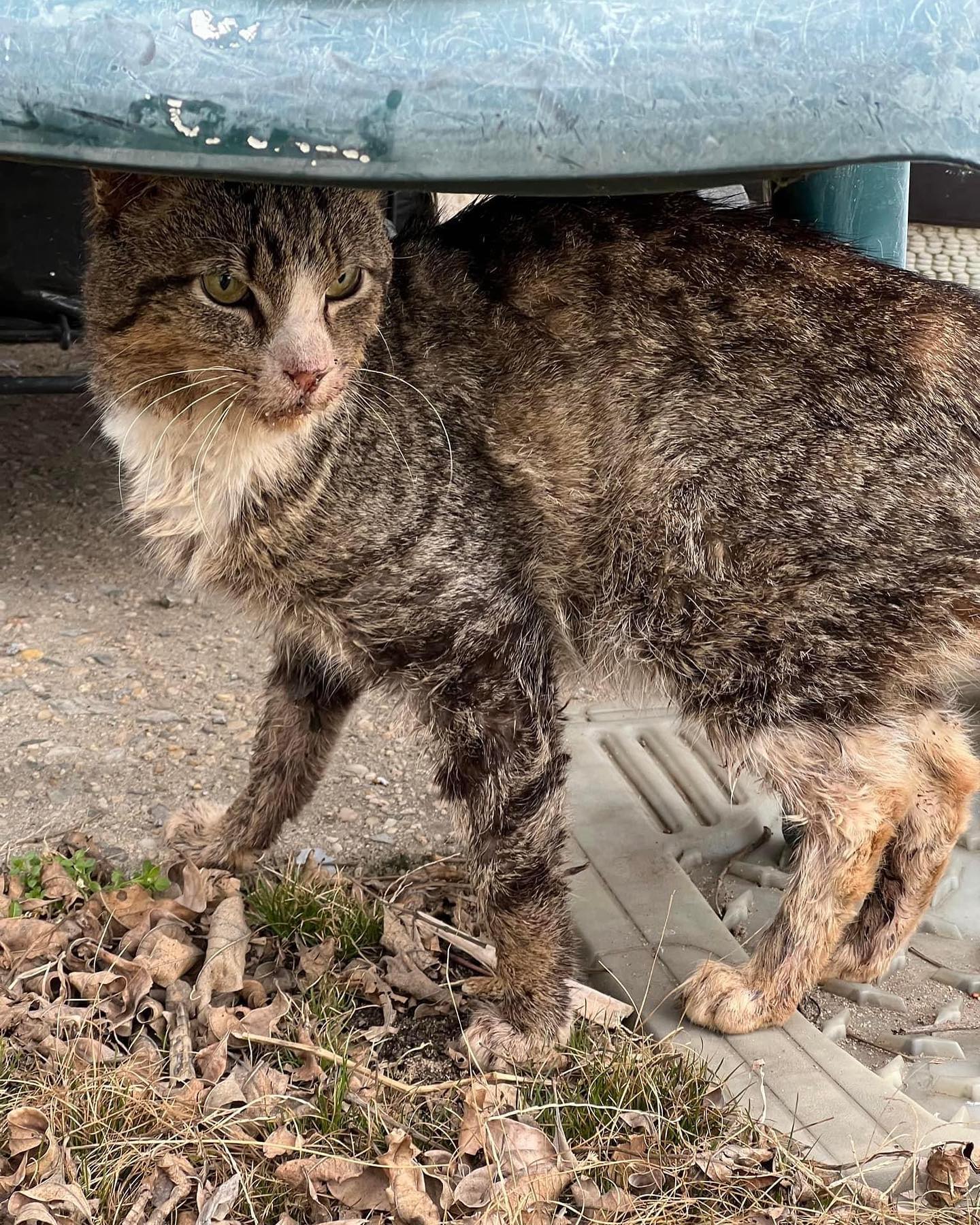
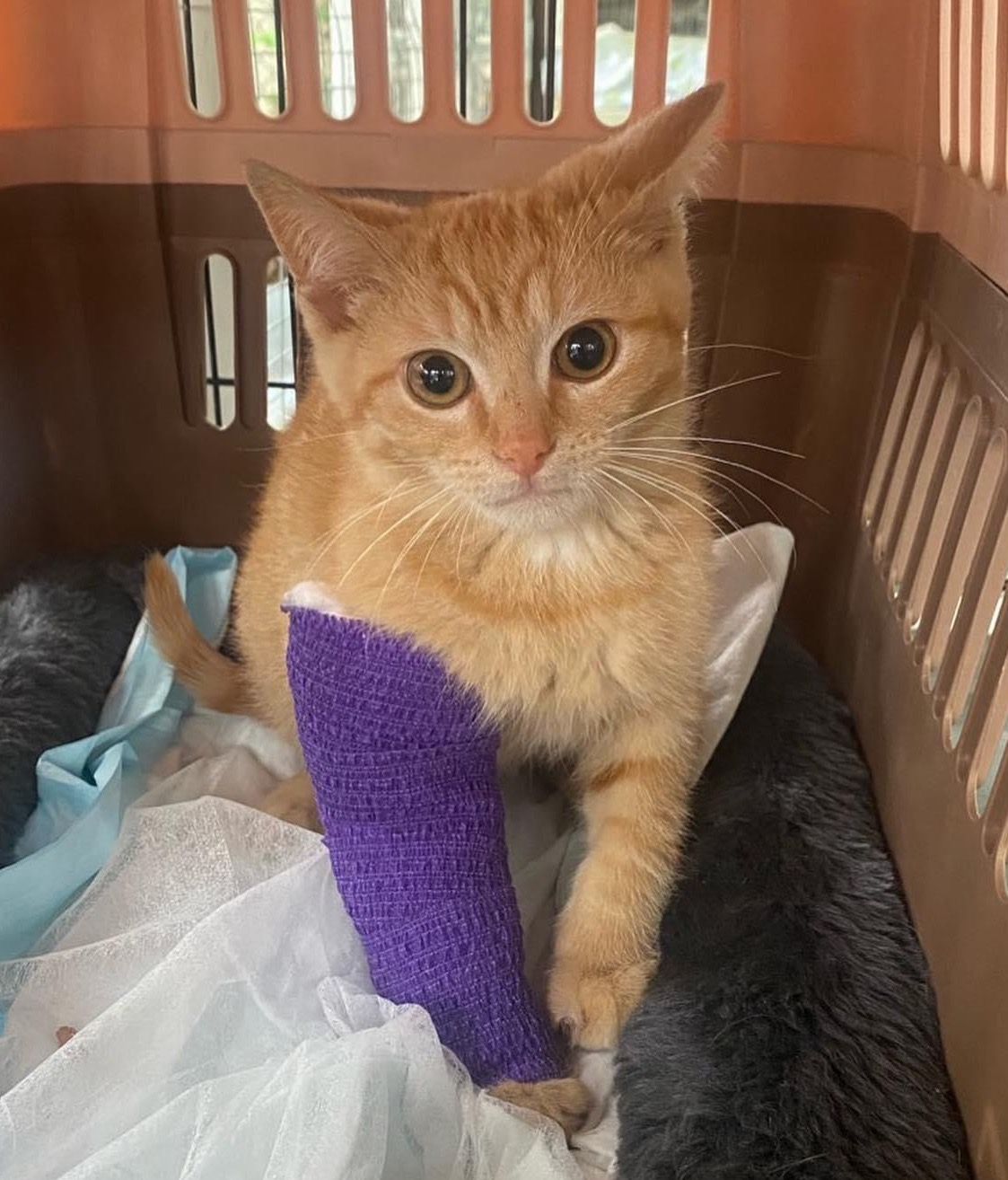
TNR Reduces Suffering
By bringing caretakers and trappers into feral communities, TNR nitiatives also helps rescuers identify sick or injured cats so they can get them the necessary medical care.
TNR stabilizes feral cat colonies. Fewer kittens are born so the communities do not grow organically.
TNR gives abandoned and friendly animals a second chance at a good life.
Dumped cats often end up in colonies near their previous home but they are not equipped for outdoor living. These cats need to be rescued.
As part of TNR rescuers identify cats that are friendly or dumped so we can get them into forever homes.
TNR Saves Lives
TNR reduces the number of unwanted cats euthanized in shelters
Yes, Really.
According to studies in several states (Virginia, South Carolina, Florida, Texas and California) noted a 40-70% decline in shelter intakes. see source here

number of cats we TNRed in 2023
We are a small rescue. We’d love to do more. This does not include our sponsorship of spay and neuter efforts outside the US in places like Guyana.
The Approximate Total Number of cats For Animals Inc has TNRed
How much it costs to spay or neuter one cat
Cost vary by facility. Appointment availability at low-cost facilities is extremely limited
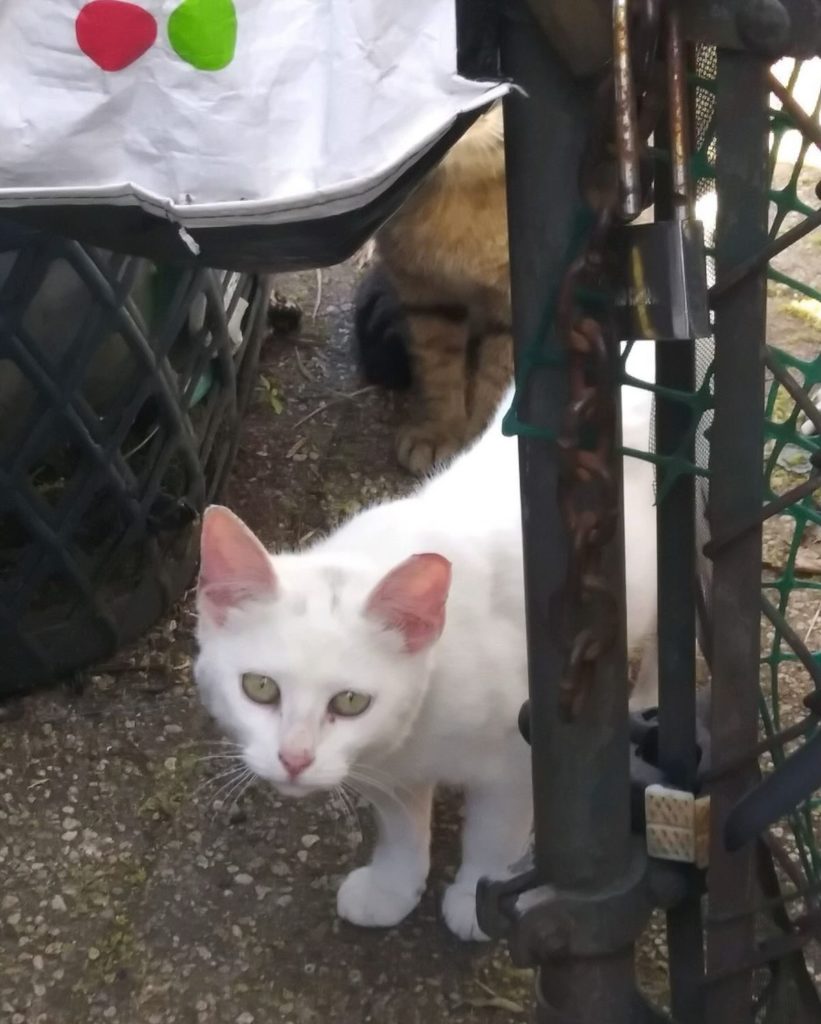
How can I participate in a TNR program in my community?
You can help reduce the number of feral cats in your community by trapping them and bringing them to our veterinary partners to be spayed or neutered, then releasing them back to their colonies. Visit our Volunteer page for more information about becoming a TNR volunteer.
Additionally, there are many TNR efforts currently underway throughout New York City and the rest of the nation. Contact Neighborhood Cats or fill out Alley Cat Allies’ Email Assistance Form to find TNR help in your community.
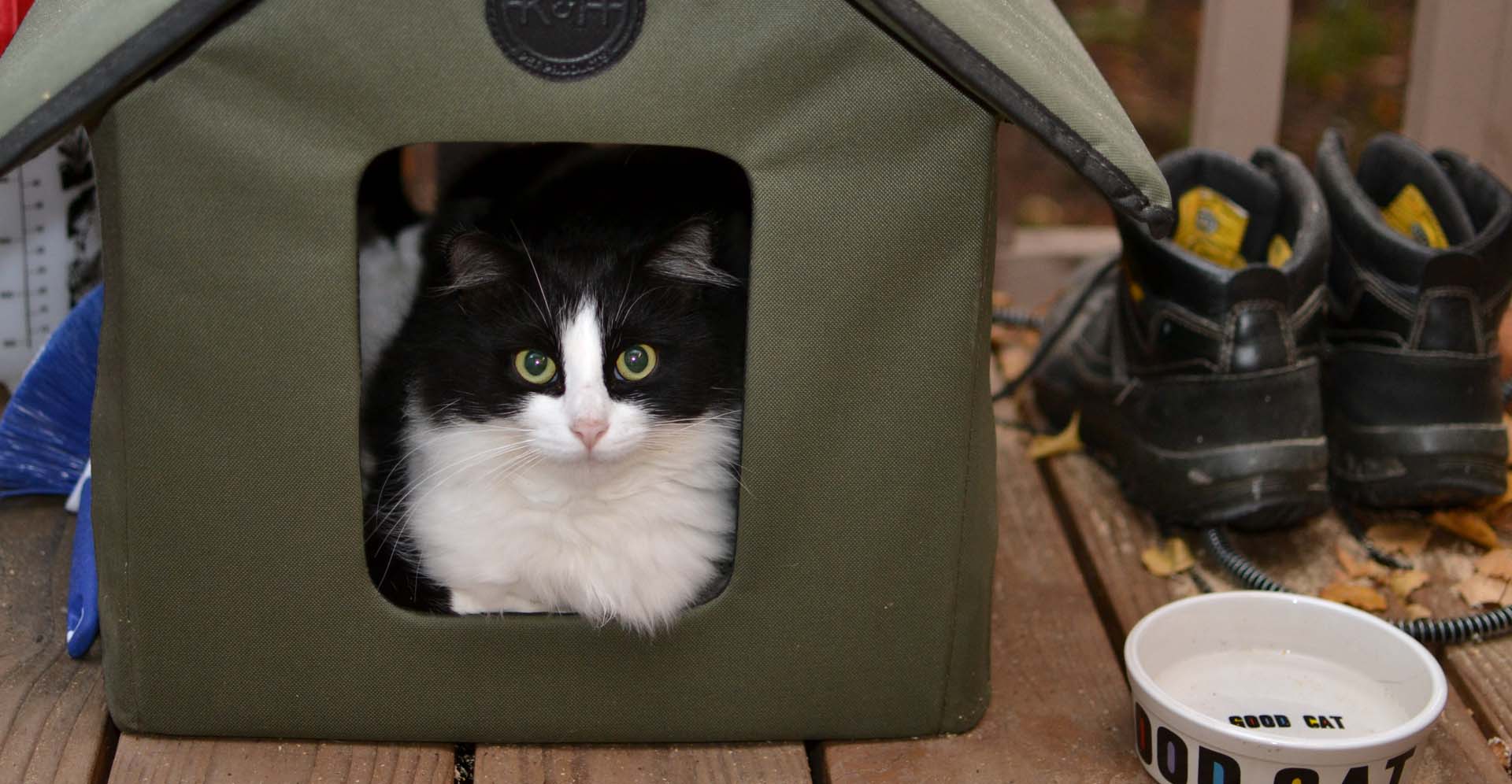
How can I keep my colony warm in the winter?
A properly maintained feral cat colony must have adequate shelter for the winter. You can make your own or purchase a well made shelter from a number of experienced architects.

